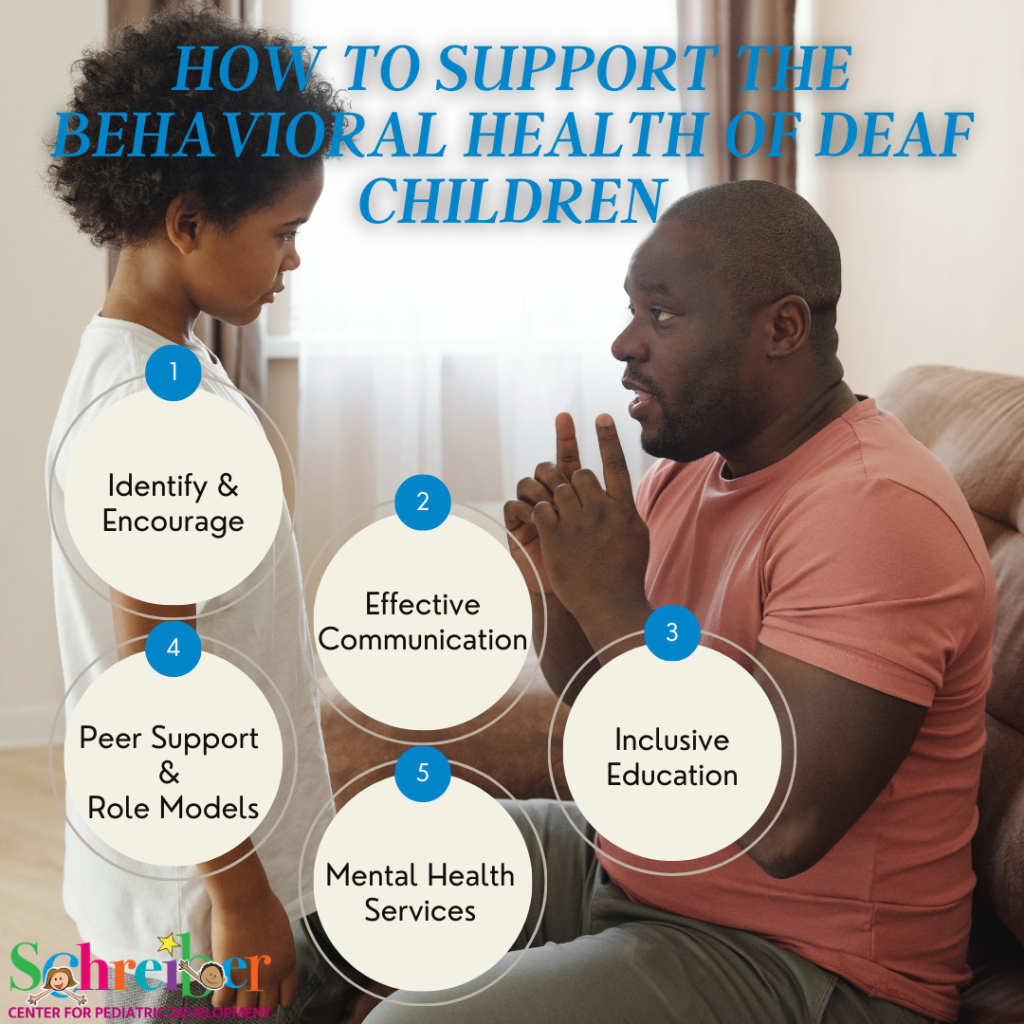Tag: mental health
How to Support the Behavioral Health of Deaf Children
September 21, 2023Deaf children, like all children, deserve every opportunity to lead healthy and fulfilling lives. However, they often encounter unique challenges that can impact their behavioral health and overall well-being. From social isolation to academic struggles, the mental health journey for Deaf children can be complex. This post will explore the various behavioral health concerns Deaf children may face and look at different strategies to provide the support they need.
Understanding the Challenges
Social Isolation and Peer Exclusion: Communication barriers can lead Deaf children to feel isolated and make it difficult for them to form connections with their peers. They may find themselves on the outskirts of social interactions, leading to feelings of loneliness and exclusion.
Coping with Stigmas and Misconceptions: Deafness is often misunderstood, leading to stigmatization and misconceptions. These misunderstandings can impact a Deaf child’s self-esteem and self-worth.
Anxiety and Depression: The frustration of miscommunication and the pressure to fit in can contribute to anxiety and depression among Deaf children.
Academic Struggles: Inaccessible educational environments and inadequate support for children who are deaf, can lead to their academic struggles. These struggles can cause additional stress and have a negative impact on mental health.
Miscommunication within Families: Communication barriers between Deaf children and their hearing family members can lead to misunderstandings and strained relationships. Without a support system at home, their mental health can quickly decline.
Struggles with Self-Identity and Self-Esteem: Deaf children may grapple with their identity, especially when they feel caught between the Deaf and hearing worlds.
Lack of Access to Mental Health Services: Limited access to mental health services that cater to the unique needs and communication preferences of Deaf children can further exacerbate these challenges.
Strategies for Support
Identify & Encourage: Early intervention is key. By addressing potential issues early on and teaching children who are deaf coping skills and emotional regulation techniques, we can encourage Deaf children to embrace their identity and build self-confidence.
Effective Communication: We strive to ensure that Deaf children have access to communication methods that suit them. You can help by educating yourself and others about Deaf culture and communication strategies to foster understanding.
Inclusive Education: Advocating for inclusive education that allows Deaf children to learn alongside their hearing peers helps minimize social isolation. By implementing anti-bullying programs you can also help prevent and address bullying of children who are deaf.
Peer Support & Role Models: It’s important to create opportunities for Deaf children to connect with peers who share similar experiences. In introducing them to successful Deaf role models you can also help spark their inspiration and guide them to success.
Mental Health Services: Ensuring access to mental health services is one of the best things you can do to support the behavioral health of Deaf children. Specifically those that cater to Deaf children’s communication preferences. Be sure to provide information about these services in accessible formats.
Creating an Inclusive Environment
Supporting the behavioral health of Deaf children requires a community effort. By approaching their challenges with empathy and understanding, we can create environments where they can thrive. Let’s work together to build a world where Deaf children are empowered to achieve their full potential and lead emotionally healthy lives.
If you child is Deaf and you are interested in learning more about how Schreiber’s Pediatric Therapies can help your child visit: http://www.schreiberpediatric.org/therapy-services/
As a nationally recognized pediatric facility, the Schreiber Center for Pediatric Development provides family-centered education and therapy programs for infants, children and adolescents with disabilities, developmental delays, and acquired injuries. Our goal-oriented approach maximizes each child’s ability to function independently within the community.
